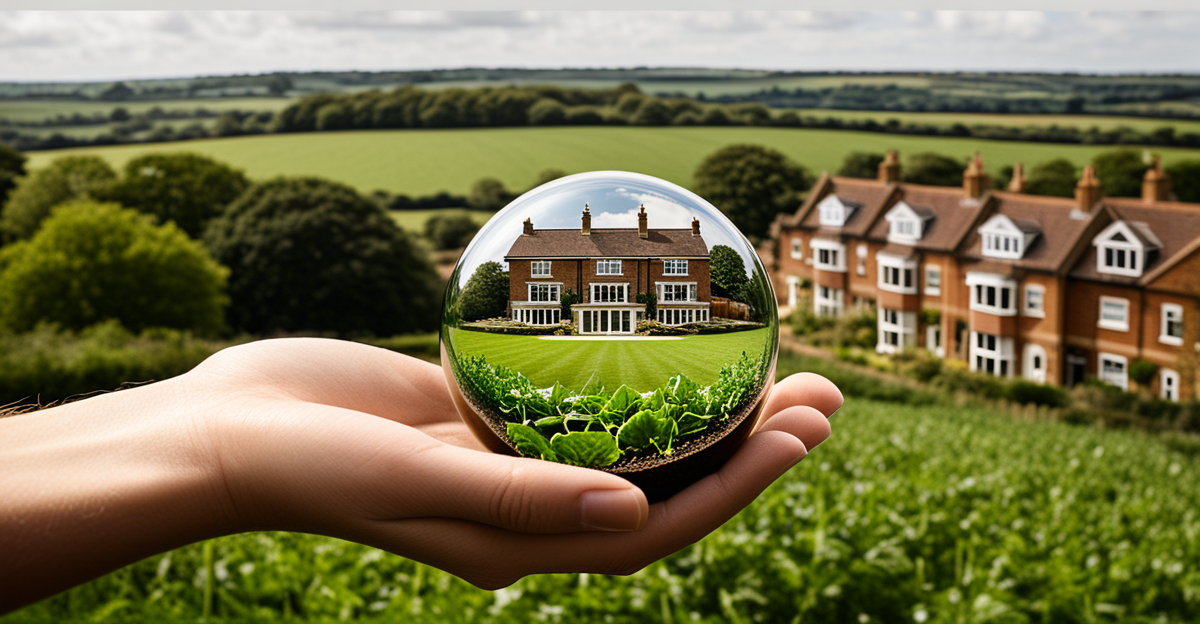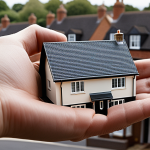Defining Sustainability in UK Real Estate
Understanding core principles and benchmarks
Sustainability in UK real estate revolves around integrating environmental responsibility in real estate and adopting practices that minimize ecological impact while promoting social value. Sustainable UK property investment prioritizes energy efficiency, waste reduction, and responsible resource use, ensuring developments meet present needs without compromising future generations.
In parallel : How Can the UK’s Real Estate Market Influence Personal Investment Strategies?
Environmental and social governance (ESG) plays a critical role by setting standards that property investors must follow to foster transparency and accountability. ESG integration encourages stakeholders to evaluate environmental impacts alongside social and governance factors, helping balance profitability with ethical considerations.
Key benchmarks shaping sustainability include widely recognized real estate sustainability standards such as the Building Research Establishment Environmental Assessment Method (BREEAM). These frameworks provide measurable criteria for energy use, carbon emissions, and occupant wellbeing, guiding developers and investors towards more sustainable outcomes. By adhering to these standards, UK real estate can significantly reduce its environmental footprint while enhancing asset value and community acceptance.
Topic to read : How Can Real Estate Investments Lead to Financial Freedom in the UK?
Defining Sustainability in UK Real Estate
Sustainability in UK real estate centers on integrating environmental responsibility in real estate to reduce ecological impact. Sustainable UK property investment involves evaluating how properties affect natural resources, energy consumption, and social wellbeing over their lifecycle. Core principles include resource efficiency, carbon footprint reduction, and promoting healthier living environments.
Environmental and social governance (ESG) has become essential in guiding investors toward more responsible choices in property portfolios. ESG factors assess how developments address environmental challenges, community impact, and governance transparency.
Key benchmarks shaping real estate sustainability standards in the UK include frameworks like the Building Research Establishment Environmental Assessment Method (BREEAM). These standards provide measurable criteria for energy use, water efficiency, materials sourcing, and indoor environmental quality. Complying with such benchmarks ensures developments meet legal requirements and appeal to increasingly eco-conscious investors.
By prioritizing these standards, sustainable UK property investment aligns financial objectives with responsible stewardship, supporting long-term value in the real estate market. This approach benefits communities while driving forward government ambitions to reduce emissions and promote greener urban spaces.
Emerging Strategies for Sustainable Investment
Exploring innovation in UK real estate finance and certification
Emerging sustainable investment strategies in UK real estate now heavily rely on ESG integration UK real estate to drive decision-making. Investors use Environmental, Social, and Governance criteria to evaluate property portfolios beyond traditional financial metrics. This approach ensures that environmental responsibility in real estate is prioritized alongside economic returns.
Key to these strategies are green certifications for property, such as BREEAM, LEED, and WELL, which provide verifiable benchmarks for sustainability performance. For example, BREEAM certifies a building’s energy efficiency and occupant health, offering investors tangible evidence of reduced environmental impact. These certifications not only enhance market appeal but also improve long-term asset value.
Innovative financing models further support sustainable UK property investment. Green bonds and sustainability-linked loans reward developers who meet or exceed environmental targets with lower interest rates or better terms. This financial encouragement makes sustainable projects more viable and attractive.
By combining real estate sustainability standards with ESG-focused investment and tailored financial tools, the UK property sector moves toward more responsible, profitable sustainable development. This evolving landscape benefits investors and communities alike.
Emerging Strategies for Sustainable Investment
Fostering innovation in UK property portfolios
Emerging sustainable investment strategies increasingly revolve around ESG integration UK real estate, which anchors financial decisions in environmental responsibility and social governance metrics. This systemic approach helps investors evaluate impacts beyond mere profits, focusing on long-term value creation and risk mitigation.
Green building certifications such as BREEAM, LEED, and WELL are core to these strategies. In the UK market, BREEAM remains the leading real estate sustainability standard, providing clear criteria on energy efficiency, resource use, and occupant wellbeing. LEED and WELL certification offer complementary frameworks focusing on sustainability and human health within properties, which appeal to socially-conscious investors and tenants alike.
Innovative financing models also support these strategies, like green bonds or sustainability-linked loans, which incentivize compliance with green criteria. By tapping into these instruments, sustainable UK property investment gains access to new capital, aligning asset growth with environmental goals.
Together, these approaches form a robust foundation for embedding sustainability in UK real estate portfolios, encouraging adoption of high standards and responsible market behaviour.
Renewable Energy and Technology in UK Property
Exploring advances in energy and smart systems for sustainable property upgrades
Integrating renewable energy for real estate is increasingly vital for sustainable UK property investment. Solar panels and wind turbines installed on-site reduce dependence on grid electricity, cutting carbon emissions significantly. Residential and commercial developments benefit from incorporating such technologies early in the design phase to optimize energy yields.
Beyond generation, smart building technology enhances operational efficiency. Automated lighting, heating, and cooling systems adjust dynamically to occupancy and weather, reducing energy waste. These intelligent controls also provide real-time data for building managers, enabling proactive maintenance and further savings.
Retrofitting existing properties with sustainable upgrades UK initiatives is another critical area. Energy-efficient windows, insulation improvements, and smart meters improve performance without costly rebuilds. Such interventions align with real estate sustainability standards, making buildings more competitive and compliant with evolving regulations.
Incorporating renewable energy and smart technologies not only supports environmental responsibility in real estate but also enhances asset value and tenant satisfaction. These innovations form a cornerstone of modern sustainable UK property investment strategies.
Renewable Energy and Technology in UK Property
Advancing sustainability through innovation
The integration of renewable energy for real estate is transforming UK property markets by reducing reliance on fossil fuels and lowering carbon footprints. Solar panels, heat pumps, and wind turbines are commonly adopted on-site renewable energy solutions in residential and commercial developments, providing measurable energy savings while supporting sustainability goals.
Smart building technology enhances this shift by optimizing energy consumption. Intelligent sensors, automated lighting, and advanced HVAC controls contribute to reducing waste and operational costs. These systems support sustainable property upgrades UK by increasing efficiency and occupant comfort simultaneously.
Retrofitting older buildings with sustainable upgrades is crucial to meet evolving environmental standards. Improvements like enhanced insulation, energy-efficient windows, and modern renewable technologies increase asset value and future-proof properties against stricter regulations.
Combining renewable energy for real estate with smart technologies creates a dynamic approach to sustainable UK property investment. This approach not only aligns with growing environmental responsibility in real estate but also offers practical financial benefits, enhancing both market appeal and long-term resilience.
Defining Sustainability in UK Real Estate
Sustainability principles and benchmarks guiding progress
Sustainable UK property investment hinges on embedding environmental responsibility in real estate through measurable, practical standards. Investors and developers prioritise reducing carbon footprints, promoting resource efficiency, and enhancing occupant wellbeing. These efforts ensure properties serve current needs without undermining future generations.
Environmental and social governance (ESG) plays a central role by demanding transparency in how assets affect communities and ecosystems. ESG metrics provide vital insights for assessing social impact alongside environmental performance. This dual focus fosters accountability and aligns investment with broader societal goals.
Real estate sustainability standards like BREEAM lead the UK’s drive for greener buildings. BREEAM evaluates energy usage, water consumption, material sourcing, and indoor environment quality, offering clear benchmarks. Complying with such standards often translates to improved marketability and regulatory compliance, appealing to eco-conscious stakeholders.
Ultimately, sustainable UK property investment integrates these principles and standards to balance profitability with ethical stewardship. This approach supports resilient, future-ready real estate assets poised for long-term success.
Defining Sustainability in UK Real Estate
A focus on principles and benchmarks
Sustainable UK property investment fundamentally involves prioritizing environmental responsibility in real estate to achieve long-term ecological and social benefits. This means evaluating how each project impacts energy consumption, carbon emissions, water use, and occupant wellbeing throughout its lifecycle.
Central to this approach are established real estate sustainability standards, which provide clear, measurable criteria to guide development and management. In the UK, frameworks like BREEAM set benchmarks on energy efficiency, waste management, resource use, and indoor environmental quality. These standards ensure properties comply with both legal requirements and growing investor demands for sustainability.
Environmental and social governance (ESG) factors also play a crucial role by integrating transparency and accountability into investment decisions. ESG evaluation helps investors identify risks and opportunities related to environmental impact, social factors, and governance structure, creating a balanced approach to profitability and responsibility.
By embedding real estate sustainability standards and environmental responsibility in real estate, sustainable UK property investment not only supports government climate goals but also enhances asset resilience and market appeal. This alignment of economic and ecological priorities is key to the sector’s future growth.
Defining Sustainability in UK Real Estate
Balancing ethical values with practical standards
Sustainable UK property investment hinges on embedding environmental responsibility in real estate through clear principles and measurable outcomes. At its core, sustainability means reducing carbon emissions, conserving natural resources, and enhancing occupant wellbeing while supporting financial goals.
Environmental and social governance (ESG) criteria have become vital in decision-making processes. ESG integration UK real estate enables investors to evaluate projects by combining social impact, governance transparency, and environmental performance. This comprehensive approach ensures investments support wider societal objectives alongside profitability.
Central to these efforts are established real estate sustainability standards. For instance, BREEAM sets rigorous benchmarks covering energy efficiency, water use, materials sourcing, and indoor environmental quality. Adhering to such standards is increasingly necessary for market competitiveness, regulatory compliance, and long-term asset resilience.
Together, these frameworks and values guide sustainable UK property investment toward balancing economic success with ethical stewardship. This alignment encourages responsible development that meets today’s needs without compromising the future, addressing both investor priorities and environmental imperatives.
Defining Sustainability in UK Real Estate
Sustainability principles and benchmarks guiding progress
Sustainable UK property investment fundamentally involves embedding environmental responsibility in real estate by evaluating a development’s impact on energy use, carbon emissions, and social wellbeing throughout its lifecycle. This ensures projects contribute positively to ecological and community health.
Central to this approach are established real estate sustainability standards, which provide measurable criteria for materials, waste management, water efficiency, and indoor environmental quality. The UK’s leading frameworks, such as BREEAM, help developers and investors align projects with climate targets while meeting legal requirements.
Environmental and social governance (ESG) complements these standards by ensuring transparency and accountability in how properties affect society and ecosystems. ESG assessments evaluate risks and opportunities related to environmental impact, community relations, and governance practices, informing more responsible property investment decisions.
By combining rigorous real estate sustainability standards with a commitment to environmental responsibility in real estate, sustainable UK property investment balances profitability with ethical stewardship, creating resilient assets that appeal to eco-conscious stakeholders and support long-term value growth.
Defining Sustainability in UK Real Estate
Clarifying foundational principles and benchmarks
Sustainable UK property investment embeds environmental responsibility in real estate by addressing energy use, carbon emissions, water efficiency, and occupant wellbeing over a property’s lifecycle. This comprehensive approach ensures developments minimize environmental impact while maintaining economic viability.
Central to this are real estate sustainability standards like BREEAM, which provide measurable benchmarks on energy consumption, materials sourcing, and indoor environmental quality. Compliance with these standards enables investors to align projects with both legal requirements and growing market expectations.
Environmental and social governance (ESG) factors further enhance sustainability by incorporating social impact and governance transparency into the investment decision-making process. ESG integration UK real estate promotes accountability and risk mitigation, helping investors balance profitability with ethical stewardship.
Together, rigorous adoption of real estate sustainability standards and ESG criteria enables UK property portfolios to deliver long-term value while addressing urgent climate challenges. These frameworks guide developers and investors in implementing practical, responsible actions, securing more resilient and attractive real estate assets.










